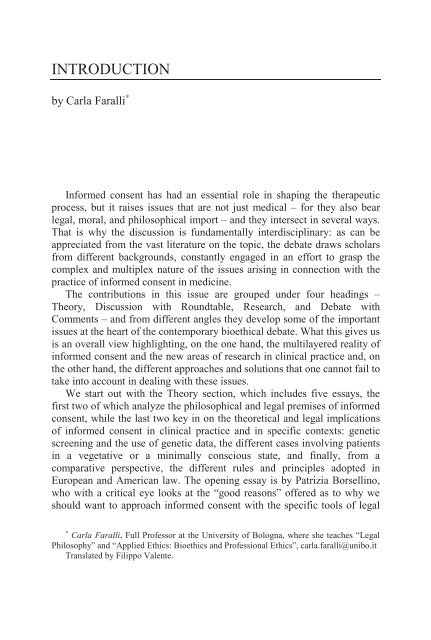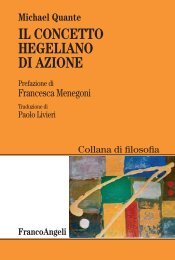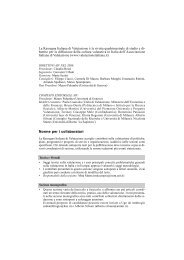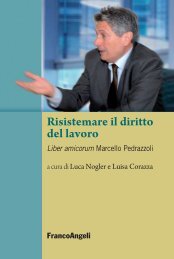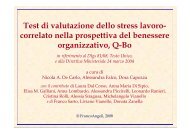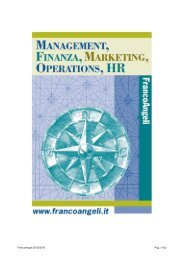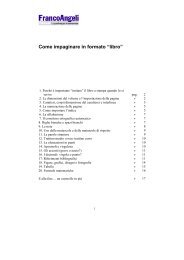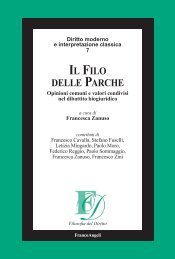E-book FrancoAngeli - Franco Angeli Editore
E-book FrancoAngeli - Franco Angeli Editore
E-book FrancoAngeli - Franco Angeli Editore
Create successful ePaper yourself
Turn your PDF publications into a flip-book with our unique Google optimized e-Paper software.
INTRODUCTION<br />
by Carla Faralli ∗<br />
Informed consent has had an essential role in shaping the therapeutic<br />
process, but it raises issues that are not just medical – for they also bear<br />
legal, moral, and philosophical import – and they intersect in several ways.<br />
That is why the discussion is fundamentally interdisciplinary: as can be<br />
appreciated from the vast literature on the topic, the debate draws scholars<br />
from different backgrounds, constantly engaged in an effort to grasp the<br />
complex and multiplex nature of the issues arising in connection with the<br />
practice of informed consent in medicine.<br />
The contributions in this issue are grouped under four headings –<br />
Theory, Discussion with Roundtable, Research, and Debate with<br />
Comments – and from different angles they develop some of the important<br />
issues at the heart of the contemporary bioethical debate. What this gives us<br />
is an overall view highlighting, on the one hand, the multilayered reality of<br />
informed consent and the new areas of research in clinical practice and, on<br />
the other hand, the different approaches and solutions that one cannot fail to<br />
take into account in dealing with these issues.<br />
We start out with the Theory section, which includes five essays, the<br />
first two of which analyze the philosophical and legal premises of informed<br />
consent, while the last two key in on the theoretical and legal implications<br />
of informed consent in clinical practice and in specific contexts: genetic<br />
screening and the use of genetic data, the different cases involving patients<br />
in a vegetative or a minimally conscious state, and finally, from a<br />
comparative perspective, the different rules and principles adopted in<br />
European and American law. The opening essay is by Patrizia Borsellino,<br />
who with a critical eye looks at the “good reasons” offered as to why we<br />
should want to approach informed consent with the specific tools of legal<br />
∗ Carla Faralli, Full Professor at the University of Bologna, where she teaches “Legal<br />
Philosophy” and “Applied Ethics: Bioethics and Professional Ethics”, carla.faralli@unibo.it<br />
Translated by Filippo Valente.


